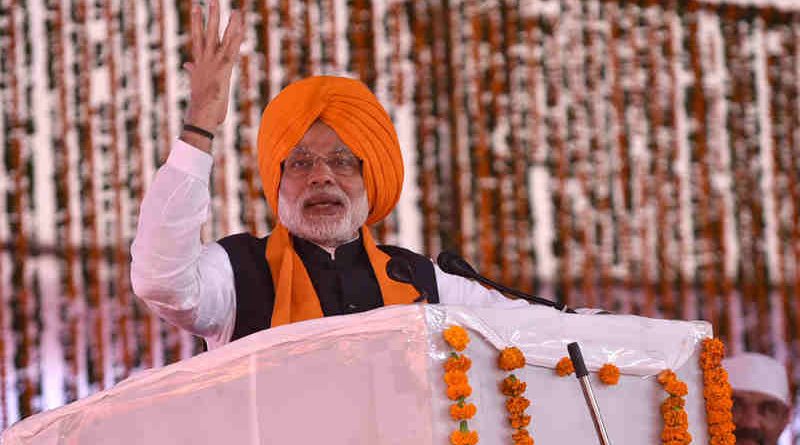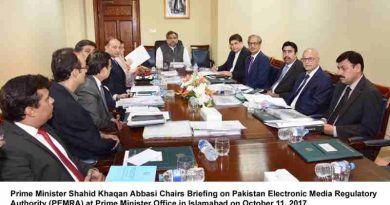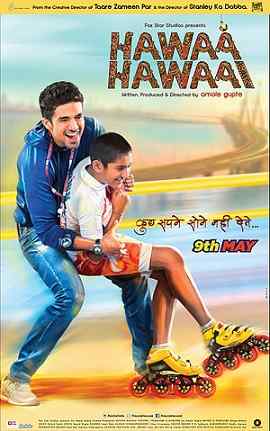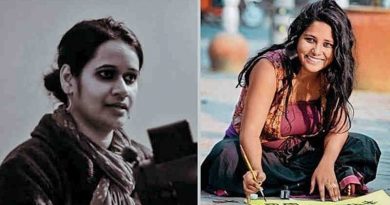U.S. May Again Cancel Modi’s Visa for Gujarat Riots and Mob Violence

A new U.S. report reveals deteriorating religious freedom conditions in India where the government headed by Prime Minister (PM) Narendra Modi is engaged in politicization of religion.
The United States Commission on International Religious Freedom (USCIRF) Report, 2019 finds that it is increasingly difficult to separate religion and politics in India – a tactic that is sometimes intentional by those who seek to discriminate against and restrict the rights of certain religious communities.
The report adds that Individual Violators Section 212(a)(2)(G) of the Immigration and Nationality Act, a provision added by IRFA (International Religious Freedom Act), makes inadmissible to the United States foreign officials who are responsible for or directly carried out particularly severe religious freedom violations.
[ Gujarat Riots Whistleblower Sanjiv Bhatt Jailed for Life. Wife Says Justice Denied ]
To date, according to the report, the provision’s only publicly known use was in 2005, when then Chief Minister Narendra Modi of Gujarat State in India was excluded due to his complicity in 2002 riots in his state that resulted in the deaths of an estimated 1,100 to 2,000 Muslims.
In recent years, the IRF Office has worked to identify non-citizens who would be inadmissible on this basis should they apply for U.S. visas. Although as the PM of India, now Modi enjoys political immunity, the possibility of denying U.S. visa to him cannot be ruled out because of increasing mob violence in India.
[ Year of the Lynch Mob in PM Modi’s India: New York Times ]
The report says that in 2018, religious freedom conditions in India continued a downward trend. In 2018, the report says, approximately one-third of state governments increasingly enforced anti-conversion and/or anti-cow slaughter laws discriminatorily against non-Hindus and Dalits alike.
Further, cow protection mobs engaged in violence predominantly targeting Muslims and Dalits, some of whom have been legally involved in the dairy, leather, or beef trades for generations. Mob violence was also carried out against Christians under accusations of forced or induced religious conversion.
[ Only a Dacoit or a Monster Can Defeat Modi ]
In cases involving mobs killing an individual based on false accusations of cow slaughter or forced conversion, police investigations and prosecutions often were not adequately pursued. Rules on the registration of foreign-funded nongovernmental organizations (NGOs) were discriminatorily implemented against religious minority groups.
The report further says that PM Modi seldom made statements decrying mob violence, and certain members of his political party have affiliations with Hindu extremist groups and used inflammatory language about religious minorities publicly.
[ Lethal Gas Chambers of India: Research Report on Pollution in Delhi ]
Victims of large-scale attacks in recent years have not been granted justice, and reports of new crimes committed against religious minorities were not adequately accounted for or prosecuted.
Based on these concerns, in 2019 USCIRF again places India on its Tier 2 for engaging in or tolerating religious freedom violations that meet at least one of the elements of the “systematic, ongoing, egregious” standard for designation as a “country of particular concern,” or CPC, under the International Religious Freedom Act (IRFA).
[ Rafale Corruption Case: Is Chowkidar Modi Still a Chor? ]
While the Indian government repeatedly has denied USCIRF access to India, the Commission says it welcomes the opportunity to openly and candidly engage with the Indian government—including the chance for a USCIRF delegation to visit India—to discuss shared values and interests, including international standards of freedom of religion or belief and related human rights.
Among its recommendations to the U.S. government, the USCIRF report expects the Indian government to allow a USCIRF delegation to visit India and meet with stakeholders to evaluate conditions for freedom of religion or belief in India.
Response on Social Media
There is a massive response from people about this article on social media sites such as Facebook. For example, you can check out the users’ response on Facebook Group 1, Facebook Group 2, and Facebook Group 3.
It also recommends the strengthening of training and capacity of state and central police to prevent and punish cases of religious violence, while also protecting victims, witnesses, and houses of worship and other holy sites.
The report suggests the passage of the Protection of Human Rights (Amendment) Bill, 2018 to establish national and state human rights commissions and human rights courts, and assisting the Ministry of Law and Justice to work with state prosecutors to increase the rate of prosecutions for hate crimes and online hate speech targeting religious minorities.
USCIRF report also suggests to increase the U.S. Embassy’s focus on religious freedom and related human rights through continued visits to regions impacted by religiously motivated violence and dialogue with religious communities, local governmental leaders, and police, and advocate for the Indian central government to ensure that the Foreign Contribution Regulation Act (FCRA) is not used discriminatorily to target international missionary and human rights groups.




